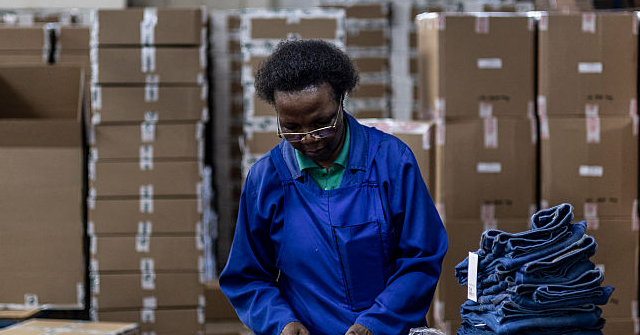Deputy Prime Minister Nthomeng Majara declared the “state of disaster” when unemployment reached 30 percent in general, and almost 50 percent for young people. The emergency declaration is scheduled to expire on June 30, 2027.
Lesotho officials said the declaration will make funding available for programs designed to improve the economy and create jobs for young people. The government is also taking steps like eliminating registration fees for small start-up businesses.
Lesotho emerged from a previous “state of disaster” in March. It was declared by Prime Minister Sam Matekane in July 2024 due to food insecurity caused by a severe regional drought in 2020.
Matekane asked for assistance with the food crisis from “national, regional, and international humanitarian organizations, as well as our friends and development partners.”
The United Nations World Food Program (WFP) estimates that almost half of Lesotho’s population lives below the “food-poverty line” and a third of the population “experiences acute food anxiety.”
Lesotho was a beneficiary of many U.S. Agency for International Development (USAID) programs, many of them pertaining to HIV/AIDS. Secretary of State Marco Rubio shut down most of USAID’s activities and folded the remaining programs into the State Department in March.
Lesotho was hit with one the highest rates when President Donald Trump announced his “Liberation Day” tariffs in April. Lesotho’s 50-percent tariff rate was based on its huge trade imbalance with the United States. The country has a large number of textile mills and garment factories, most of them owned by Chinese and Taiwanese companies, and about 70 percent of their output is exported to the United States.
On the other hand, Lesotho imports very little from the United States, getting the bulk of its imports from South Africa instead. The national Gross Domestic Product is only a little over $2 billion and the impoverished Basotho cannot afford to buy a large quantity of imported American goods.
The reason Lesotho has so many foreign-owned textile plants is an extremely generous trade agreement called the African Growth and Opportunity Act (AGOA), a 2000 program that gave countries in sub-Saharan Africa duty-free access to America’s vast marketplace provided they displayed an agreeable commitment to political freedom, human rights, and anti-corruption efforts.
Exports to the U.S. from countries covered by the AGOA increased by over 400 percent across the past 25 years. The AGOA was scheduled to expire in 2015, but Congress authorized a ten-year extension, praising the success of the program at bringing foreign investment into poor African nations.
The extension is due to expire in September, and the government of Lesotho believes it will lose up to 40,000 jobs from its already troubled economy if another extension is not forthcoming.
A senior State Department official said in May that the AGOA must evolve to “reflect the modern world” and include “a much greater form of reciprocity” before it can be renewed.
Like the other high tariffs announced in April, Lesotho’s 50 percent rate was suspended pending further review and negotiations in favor of a ten percent general tariff imposed by the Trump administration.
The Trump administration used a formula to compute Lesotho’s effective tariff on U.S. goods at 99 percent, a figure Lesotho officials strongly dispute. The 99 percent figure was meant to reflect tariffs, non-tariff barriers, and each country’s trade imbalance with the United States.
Lesotho is a member of the South African Customs Union (SACU) which sets tariffs on external imports for all of its members. Those rates average around 30 percent, but can be higher for certain goods, notably including the sort of garments Lesotho exports in such vast quantities to the United States.
Uncertainty over tariff rates and the possible end of the AGOA has reportedly caused “panic” in Lesotho. Trade Minister Mokhethi Shelile said in June that American buyers are not placing orders for garments because “they don’t understand what is going to happen.”
Economic analyst Lefu Thaela said employers are “just scared of taking more orders, lest they plunge themselves into costs they are not ready to service.” Some factory owners spoke of looking for customers outside of the United States to keep their factories running.
Breitbart News
Read the full article .


